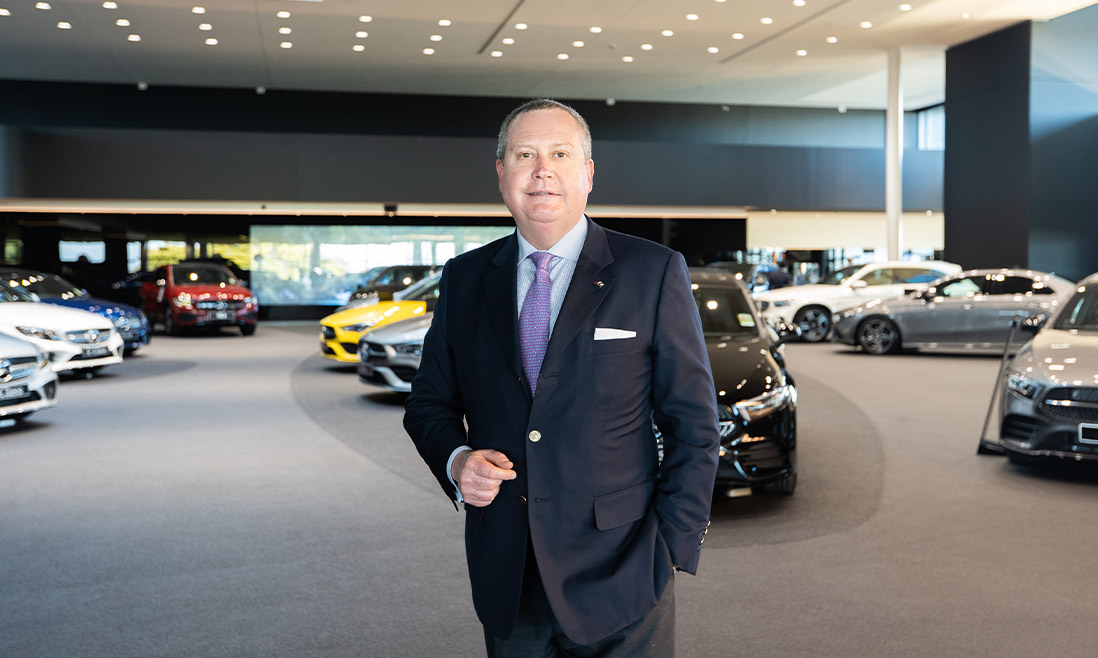
The global automotive industry is driving change.
John Good – Managing Director LSH Auto Australia
In automotive retail, the way we engage with the entire vehicle purchase, ownership and maintenance experience is changing, forever. So too what powers the cars we will all be driving. Those changes are happening now.
Major world events are catalysts for change. Be they conflicts, economic shocks or, as is the case at present, a pandemic. Such events force us to change the way we do things and we seldom go back to the way it was before.
Every industry has had to meet the challenges of the past 12 months. For the automotive industry the effect has been to telescope changes already underway. The three core arears being digital customer interactions, increasing vehicle electrification and the need to offer an engaging customer experience in a world that is electronically connected, yet becoming more physically distant.
At LSH Auto we have been addressing those changes as a central part of our strategy. Understandably, the onset of the pandemic has seen us accelerate our efforts.
Any business reliant on direct customer interaction has to be aware of changing trends and market forces. In automotive retail there has been a move for customers to access both information and services online. First manifesting as customer online research, quickly moving into locating pre-owned cars and now approaching being able to complete a purchase without ever visiting the dealership.
Dealers need to provide such online options in a manner that conveys the same level of customer care as previously delivered in person. It is a task requiring better solutions than click collect. Nonetheless, dealerships still remain a hub of customer activity. Service requires physical presence. Dealerships must make that experience both safe and pleasurable. That requires reengineering processes and rethinking customer engagement.
What customers are seeing online and what they are experiencing in the dealership is also changing, fast. Electrified motor vehicles are no longer a fad for Hollywood types and tech moguls. From full electrification to highly sophisticated hybrids, electrification is the future of the industry.
Quite apart from full EV offerings, many brands are moving to hybrid drive across a range of products. In fact, Daimler, the Mercedes-Benz parent company, has committed to fully electrified EQ brand EV in every passenger car segment. In 2021 we will see the Australian arrival of the new, compact, EQA, which will join the EQC mid-sized SUV and in short order more Mercedes-Benz EQ models will join the line-up.
Such moves will also be accelerated by the social and economic impacts of the pandemic. The move to greater private transport, although likely to be temporary, will see many looking for greener and less costly to operate options. More flexible work hours and working from home will also play into removing range anxiety. Certainly, the increased range of offerings such as the Mercedes-Benz EQ brand’s EVs will drive consumer change of choice. Add to that increased vehicle autonomy for the most mundane driving tasks and you can be sure that cars of the near future will look very different to cars of the recent past.
It is most likely that some degree of electric drive, and increased autonomy, will be part of almost every new passenger vehicle within one or two product lifecycles.
For LSH Auto the events of the past 12 months have driven an intensified focus on new ways to connect with our customers whilst simultaneously making the time they spend in our dealerships rewarding, pleasurable and memorable. We are constantly looking to add to the customer experience. We do so through partnerships that connect with our customer’s lifestyle, through community support, through facility investment, through training staff in the new technologies and assisting their career development. All of which will keep our industry relevant and vibrant for decades to come.
The desire for independent personal mobility is innate in humans. We have travelled and moved about since our appearance on this planet. The arrival of the motor vehicle age allowed us to explore, connect, and enjoy in ways we never thought. It is an industry that has, to a large extent, delivered personal freedom and we have built our societies around the reach it offers.
Now, the automotive industry has a major role in creating and supporting the transition to the future of personal mobility. But so too does government. Major societal changes to our complex and interdependent world require policy settings motivating the type of change that will deliver better outcomes. The automotive industry has shown that it can work with governments to create such positive outcomes.
In automotive retail, the way we engage with the entire, purchase, ownership and maintenance experience is changing, forever. So too what powers the cars we will all be driving. Those changes are happening now.
The way we used to do things will not return. There is no new normal, only the normal that suits the times. Change is the only constant and, as with all other industries, automotive businesses must adapt to meet the requirements of the age.

